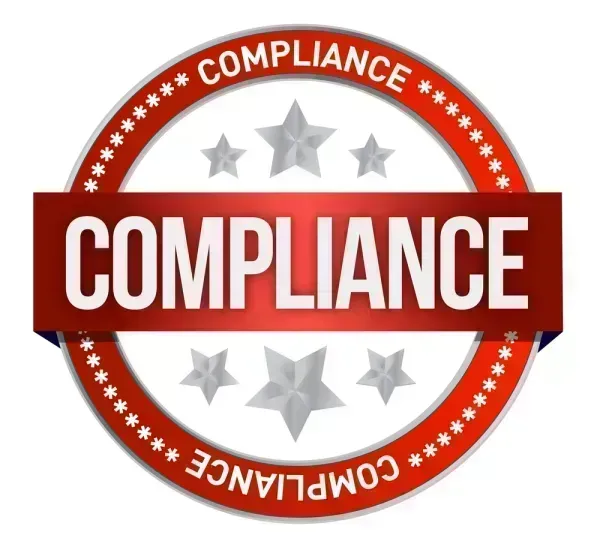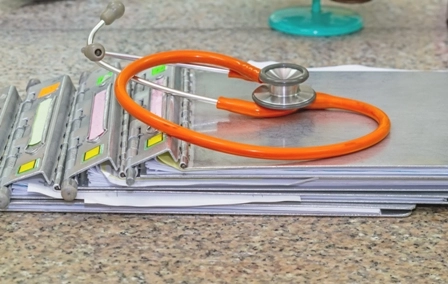Chiropractic Coding & Compliance Alert
Take Aim at Modifiers and Myths of Advanced Beneficiary Notices

Solve your ABN dilemmas with these 4 tips.
Are you one amongst those who often face the hurdle of what to do when a clinician orders a test that Medicare may not cover? Getting an Advance Beneficiary Notice (ABN) can help, but may not always be the way out.
“It’s important to understand how to use this form and be able to explain it to patients,” says Doreen Boivin, CPC, CCA, with Chiro Practice, Inc., in Saco, Maine. “Having the patient sign this form is just the first step. Then the billing needs to have the appropriate modifier attached to the service.”
Read on for a clearer picture about ABNs and related modifiers.
Master Modifiers GA, GY, GX, and GZ
You use advance beneficiary notices (ABNs) to let beneficiaries know of services that Medicare may not cover. However, make sure you use the associated modifiers in the correct manner.
Note: You don’t want to be in the position to use modifier GZ because it means that you probably won’t get paid for the service. However, by notifying Medicare using modifier GZ, you reduce the risk of allegations of fraud or abuse when filing claims that are not medically necessary, experts say.
“I don’t see this modifier used,” tells Boivin. “We are taught to not bill the payer for services not medically necessary.”
Crack the Myths Surrounding ABN’s
When to use an ABN and how to let your payer know that you have one can be a source of much confusion. Get on the right payment track with the following four myths and reality checks.
Myth 1: You Must Get an ABN for Non-Covered Services
You’re not required to get an ABN if Medicare excludes the service by statute. For instance, by rule, Medicare does not cover most screening tests that a clinician orders in the absence of signs or symptoms of disease.
If Medicare never covers a procedure, the agency always considers the patient to be responsible for the payment. But does the patient know that?
Use the ‘courtesy’ modifier: Providing an ABN in these cases is voluntary, and most providers consider it a courtesy to the patient so that he doesn’t get surprised when the bill comes.
Do this: Use GY or GX for excluded or non-covered services. Modifier GX (Notice of liability issued, voluntary under payer policy) means that you voluntarily obtained a signed ABN, and GY means that you did not.
Myth 2: Using ABN Modifier Means You Can Always Bill the Patient
Don’t confuse the value of acquiring a signed ABN with the value of using an ABN modifier. While it’s true that having a signed ABN on file means you can bill the patient if Medicare denies the claim, it is not true that billing with an ABN modifier gives you the same opportunity.
Remember: Two of the four ABN modifiers indicate that you do not have a signed ABN on file. And one of those modifiers — GZ — means that you should have acquired the document. If you use modifier GZ, you should not bill the patient or the secondary insurer.
Myth 3: ABNs Can Overcome CCI and MUE Denials
A Medicare claim denial due to a Correct Coding Initiative (CCI) edit or a Medically Unlikely Edit (MUE) seems to be either a non-covered service or non- medically reasonable or necessary service. You can bill the patient for a non-covered service with or without an ABN (modifiers GX or GY), and you can bill the patient for a service that’s not medically reasonable or necessary if you have an ABN (modifier GA).
Does that mean you can bill the patient for claims denied due to a CCI or MUE edit? No. The CCI Policy Manual has this to say: “CPT® codes representing services denied based on NCCI edits may not be billed to Medicare beneficiaries. Since these denials are based on incorrect coding rather than medical necessity, the provider cannot utilize an [ABN] form to seek payment from a Medicare beneficiary.”
Bottom line: Denials due to breach of CCI edits or MUEs are the provider’s responsibility, not the patient’s responsibility. “It is the provider and his staff who should be aware of CCI edits,” explains Boivin.
Ensure Proper Issuance of ABN
Be aware that you should consider an ABN improperly issued under the following circumstances:
You can ensure that this does not happen “by being aware of the proper use of the ABN and any coding updates and edits that have occurred,” adds Boivin.
Your failure to provide a proper ABN in situations when you need one you may result in your practice being found liable. In most situations, however, you should simply remind the patient that she has signed the ABN and that you explained at that time that she must pay if Medicare doesn’t.
Finally, an eclectic approach to using ABN’s and making sure that patient understands and cooperates, shall get you through the process well.
Related Articles
Chiropractic Coding & Compliance Alert
- Compliance/Reimbursement:
Take Aim at Modifiers and Myths of Advanced Beneficiary Notices
Solve your ABN dilemmas with these 4 tips. Are you one amongst those who often [...] - Auditing:
Brace Yourself as Noridian Medicare Proposes to Audit 98941 Claims
Use these strategies to wade through tough payer scrutiny If you’ve noticed an increase in [...] - ICD-10 Update:
Tune in Your Radar to This CMS Advice
Heed these 12 facts that CMS wants you to know about ICD-10. The clock is [...] - You Be the Coder:
Can We Code Massage with 97112?
Question: We usually submit 97124 for massage, but we were told to use 97112 instead. Is [...] - Reader Questions:
Determining Which Payer Provides for Co-payment
Question: When we have a patient with both a primary and a secondary insurance, which one [...] - Reader Questions:
Where to Look for LCDs for ICD-10
Question: Where can we find the Medicare LCDs for ICD-10? Iowa Subscriber Answer: Medicare contractors have already [...] - Reader Questions:
Use Modifier 25 for Distinct Services
Question: The DC evaluates a new patient and performs chiropractic manipulative treatment in the same visit. [...] - Reader Questions:
When Patient Doesn't Understand ABN
Question: We have a patient who was put under maintenance therapy. She was given an ABN [...]




